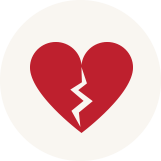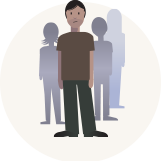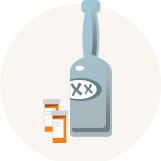Gambling opportunities are all around us. They’re in our casinos, grocery stores, gas stations, sports bars and churches, and they can even be found online. Gambling is a popular form of entertainment, and for many people, it is a spontaneous social activity. Though small amounts of money may be lost, for many people, gambling has few negative effects.
But for some people, gambling can have devastating consequences. For some, gambling can lead to financial problems, broken relationships, losses of property, careers and reputations, and much more.
Problem gambling happens throughout our communities. Some of us just don’t know it yet.
In the United States, approximately 2,000,000 adults (or 1% of all U.S. adults) are estimated to meet the diagnostic criteria for disordered gambling. Another 4,000,000 to 6,000,000 adults (2-3%) meet one or more diagnostic criteria and may be suffering the consequences of excessive gambling.
Problem gambling is a real issue being faced by individuals in New York State and throughout the world.
The good news? It’s treatable. And recovery is possible!
Gambling Disorder and the DSM-5
Though different organizations may use phrases such as “compulsive gambling” and “pathological gambling,” medical professionals refer to the medically-diagnosable condition as Gambling Disorder.
The fifth edition of the American Psychiatric Association’s Diagnostic and Statistical Manual of Mental Disorders (DSM-5) classifies gambling disorder in the category of Substance-Related and Addictive Disorders. This reflects a change from the previous categorization of Impulse Control Disorders.
The new categorization of gambling disorder more clearly lays a path for individuals to seek treatment from medical professionals, coverage from insurance providers, and understanding when educating family members and friends about the medical nature of gambling disorder.
KnowTheOdds and Problem Gambling Awareness
KnowTheOdds, sponsored by the New York Council on Problem Gambling, seeks to increase public awareness about problem gambling. We seek to create dialogue between those hurt by gambling and those advocating for support and treatment. While maintaining a neutral stance on gambling, we seek to aid individuals and communities who are currently affected by problem gambling, as well as prevent future addictions of both children and adults.
Interested in learning more about problem gambling? Start by reviewing KnowTheOdds’ problem gambling resources.





